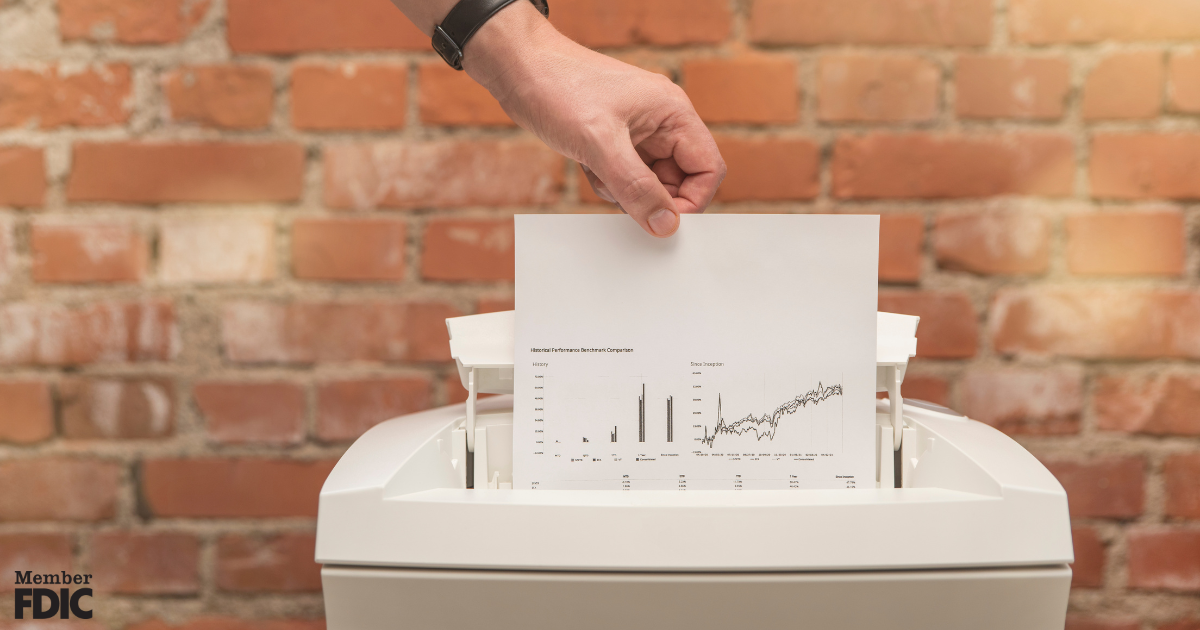Posted On: April 3, 2024 by Peoples Bank of Kankakee County in: Cybersecurity

In today's digital age, where convenience and connectivity go hand in hand, protecting yourself from fraud and identity theft is more crucial than ever. Fraudulent activities can lead to financial losses, damage your credit score, and even impact your personal life.
Here are essential tips to help you safeguard your finances and personal information:
1. Monitor Your Accounts Regularly:
Stay vigilant by frequently checking your bank statements, credit card transactions, and other financial accounts. Early detection of suspicious activities allows you to take swift action and mitigate potential damages.
2. Set Up Account Alerts:
Take advantage of these features to receive notifications for significant account activities, such as large transactions, low balances, or login attempts. Timely alerts empower you to address potential threats promptly.
3. Protect Personal Information:
Be cautious about sharing personal information, both online and offline. Avoid providing sensitive details like Social Security numbers, passwords, or financial information through unsecured channels. Legitimate organizations will not request such information via email or phone.
4. Use Strong and Unique Passwords:
Strengthen your online security by using complex, unique passwords for each of your accounts. Incorporate a mix of letters, numbers, and symbols, and update your passwords regularly. Consider using a reputable password manager to keep track of your login credentials securely.
5. Enable Two-Factor Authentication (2FA):
Add an extra layer of protection to your accounts by enabling two-factor authentication where available. This typically involves receiving a code on your mobile device or email, providing an additional barrier against unauthorized access.
6. Shred Important Documents:
Dispose of sensitive physical documents, such as bank statements, medical records, and credit card offers, by shredding them. This prevents identity thieves from accessing your personal information through discarded paperwork.
7. Educate Yourself on Common Scams:
Stay informed about prevalent scams and phishing tactics. Be wary of unsolicited emails, messages, or phone calls requesting personal information. Verify the legitimacy of any communication from unfamiliar sources.
8. Secure Your Devices:
Install and regularly update security software on your devices, including antivirus and anti-malware programs. Keep your operating system and applications up to date to patch potential vulnerabilities that fraudsters might exploit.
9. Be Cautious with Public Wi-Fi:
Avoid accessing sensitive accounts or conducting financial transactions over public Wi-Fi networks. If necessary, use a virtual private network (VPN) to encrypt your internet connection and protect your data from potential eavesdroppers.
10. Check Your Credit Report:
Regularly review your credit report for any unusual activity. Obtain free annual credit reports from major credit bureaus to ensure the accuracy of your financial information.
Remember, protecting yourself from fraud and identity theft is an ongoing process. By adopting these practices and staying informed, you can fortify your defenses and enjoy a more secure financial journey. Stay vigilant, stay secure!
Peoples Bank of Kankakee County. Member FDIC.

